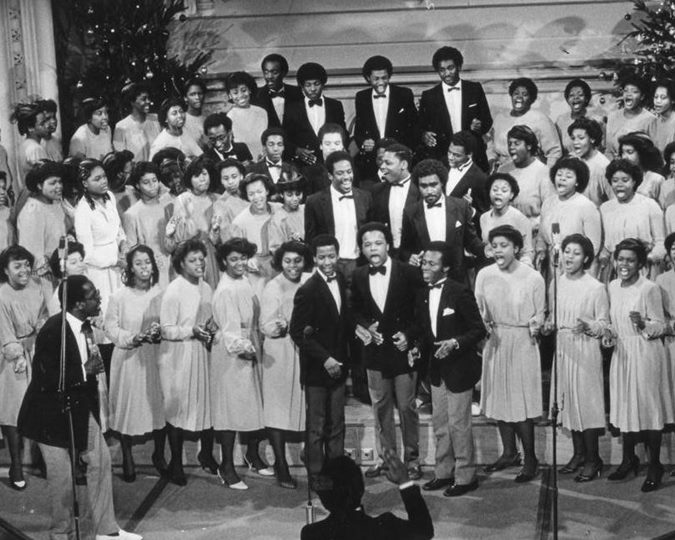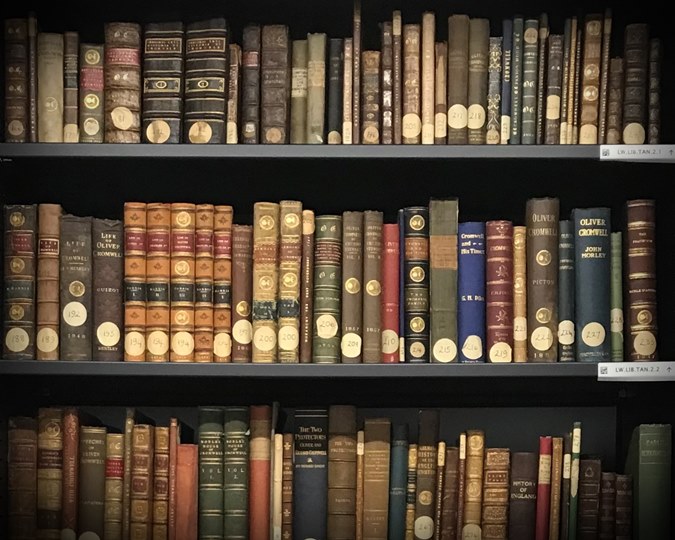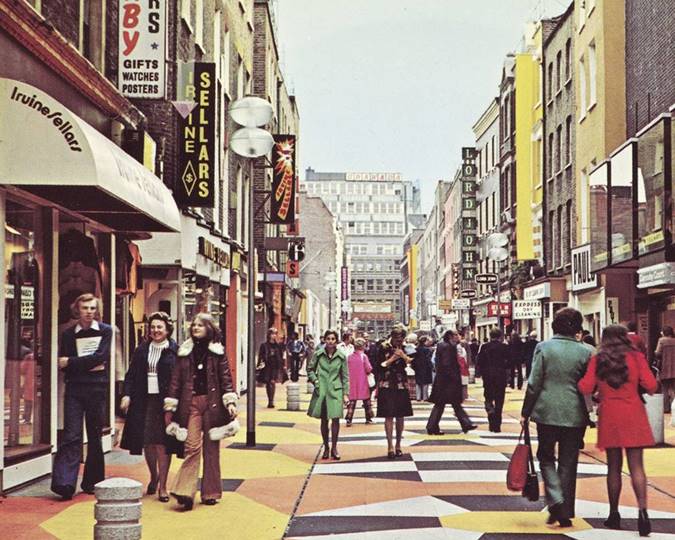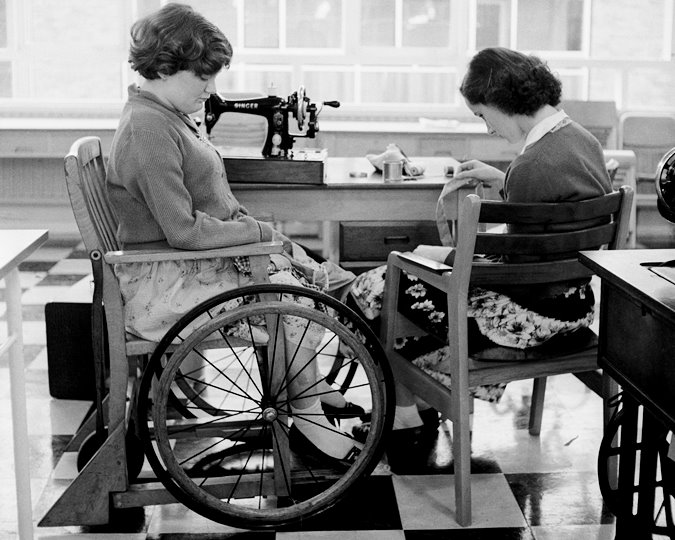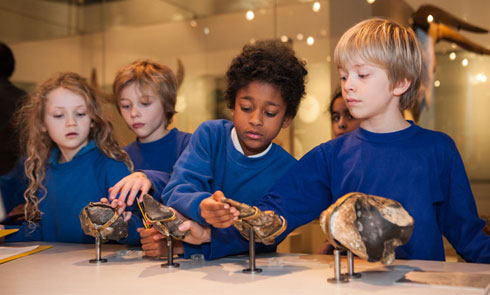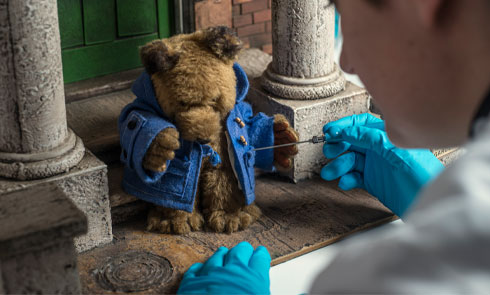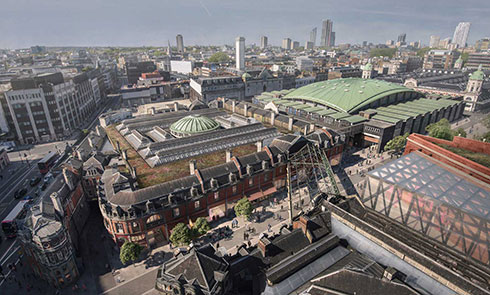- Plans approved to create new London Museum and regenerate Smithfield
- From DJ sets to late-night cinema Museum of London announces blockbuster festival weekends to close London Wall
- fabric to become world’s first nightclub-in-residence in a Museum
- Major new Museum of London Docklands exhibition uncovers London’s 700 year history of public executions
- 15-year-old Londoner takes over city bus stops as winner announced of Museum of London, BBC 100 & TfL poetry competition
- Museum of London unveils Greatest Hits mural to celebrate 45 years at London Wall
- Museum of London marks 100 days to closure with free event and giveaways for visitors
- Museum of London raises a further £7 million towards its new home at West Smithfield
- Museum of London celebrates 45 years at London Wall as it commences countdown to closure
- Sunil Gupta’s ‘Pretended’ Family Relationships photo series acquired by the Museum of London
- Putin’s Happy – Museum of London acquires Jeremy Deller film revealing a divided country and a city full of protest
- The Museum of London celebrates city's sporting hero with new display on Harry Kane
- The Museum of London presents 'Grime Stories: from the corner to the mainstream', opening 17 June 2022
- Joe Corré, Jordan and Richard Boon to appear in an uncensored, live Punk.London debate
- 300 year old love message embroidered in human hair to go on display at the Museum of London Docklands
- Museum of London begins countdown to West Smithfield relocation
- Douglas Gilmore appointed Managing Director of Museum of London Docklands
- New research to shed fresh light on the impact of industrialisation
- The Prince of Wales becomes Museum of London Patron
- The Clash’s Paul Simonon’s famous Fender Precision bass to go on display
- Behind the Scenes of the Museum of London
- Stanton Williams and Asif Khan to design new Museum of London at West Smithfield
- Museum of London acquires ensemble inspired by the creativity of the Windrush generation
- Feeding Black: Community, Power & Place opening 16 July at Museum of London Docklands
- Museum of London acquires NHS sign from ZSL London Zoo’s Giraffe House as part of Collecting COVID
- Museum of London sites set to reopen 19 May with extensions of Dub London: Bassline of a City and Havering Hoard: A Bronze Age Mystery
- Museum of London acquires Mayor of Lambeth’s homemade ceremonial chain as part of Collecting COVID project
- Museum of London acquires ‘viral’ Tweets for Collecting COVID
- Weavers’ Company donate £100,000 to the Museum of London’s move to Smithfield
- Museum of London receives Trump Baby blimp ahead of the Presidential Inauguration
- Museum of London to collect COVID dreams
- Arsenal’s captain donates Black Lives Matter shirt to the Museum of London
- Dub London: Bassline of a City opening 2 October at the Museum of London
- Public statement October 2020
- London Sugar & Slavery gallery
- New major exhibition Havering Hoard: A Bronze Age Mystery opens 11 September at the Museum of London Docklands
- Robert Milligan statue statement
- Museum of London sites to reopen 6 August with four-week extension of The Clash: London Calling display
- Public statement
- Museum of London releases first ever recorded soundscapes of London alongside new recordings of London in lockdown as part of Collecting COVID project
- Design concepts for new museum at West Smithfield revealed
- The Museum of London collects shared experiences of Ramadan in lockdown as part of Collecting COVID project
- Unheard oral histories are released by the Museum of London to mark Windrush Day
- Collecting Covid: the Museum of London seeks to mark unprecedented pandemic for the future
- Millicent Fawcett’s ‘Steadfastness and Courage’ brooch to go on permanent display for the first time
- Museum of London submits plans to create a new world-class cultural destination in West Smithfield
- King Charles I’s execution vest to go on display in new major exhibition
- Museum of London to celebrate Dub Reggae and its influence on the capital
- East End bastion Syd’s coffee stall to be donated to the Museum of London
- Free exhibit celebrating the making of The Clash’s ground-breaking album ‘London Calling’ now open
- Museum of London acquires extremely rare plate that belonged to Samuel Pepys
- The story of the Krios of Sierra Leone to be told in the Museum of London Docklands’ latest display
- Museum of London to host The Clash: London Calling exclusive free exhibit of over 100 personal items
- The largest ever Bronze Age hoard in London has been discovered
- Designs for Museum of London’s new West Smithfield home revealed
- Smithfield Street Party
- Museum of London hopes to acquire both the Trump Baby Blimp and the Sadiq Khan Blimp as part of their permanent collection
- Secret Rivers
- Beasts of London
- Recently acquired panorama goes on display for the first time at the Museum of London
- Museum of London appoints leading names to Board of Governors
- Earliest skull ever mudlarked from the Thames to go on display at the Museum of London
- Museum of London acquires beautiful panorama of lost Houses of Parliament
- Bengali arts and culture on show at the Museum of London Docklands family festival.
- Bonus Levels: Artist Lawrence Lek invites viewers to re-imagine future London
- Young Londoners to take over Museum of London this March
- The Museum of London hopes to acquire Whitechapel 'fatberg'
- Treasured children’s author Jacqueline Wilson’s latest book Wave Me Goodbye inspires family day at the Museum of London Docklands
- The City is Ours: A Tale of New Cities
- Adventures in Peter Pan’s Neverland at Museum of London Docklands
- Photography of Londoners and their pastimes on show at Museum of London
- Tracking London’s most talked about topics and emojis
- London Nights: Museum of London unveils the city at night in major photography exhibition
- Museum of London Docklands celebrates Chinese New Year this February half term
- Statement on 20 May 2017
- Whitechapel’s famous monster fatberg is coming to the Museum of London
- Museum of London Docklands to showcase rare Roman sarcophagus in first public display
- Malcolm Reading Consultants appointed to run West Smithfield International Design Competition
- 8,000 years of human history on display at the Museum of London Docklands
- An Idea for a Future London open call winner announced
- Five Museum of London apprentices appointed
- London Visions: Hypothetical scenarios of a future London
- “Reputational whitewashing” investigated in latest display at the Museum of London Docklands.
- Rare George Cross medal goes on display at the Museum of London Docklands
- Museum of London displays recently acquired Sutherland drawings in new exhibition of Blitz artwork
- What does the future hold for London and cities around the world?
- Mayor of London and City of London Corporation pledge support for new Museum of London at West Smithfield
- Smithfield street party: Museum of London celebrates 150 years of Smithfield markets
- Museum of London uses Minecraft to recreate the Great Fire of 1666
- Museum of London releases third and final Great Fire 1666 Minecraft map
- Taste not waste: Be inspired by unique recipes using your leftover food for a more sustainable future London
- Museum of London opens most theatrical exhibition ever to mark 350th anniversary of the Great Fire of London
- Museum of London acquires 100 menswear items worn by townscape consultant Francis Golding
- Votes for Women programme
- Technology replacing jobs won’t halt our working spirit
- Rare Victoria Cross with mysterious story to go on display at the Museum of London
- New display at the Museum of London traces the capital’s obsession with ice skating
- Rare tools give insight into working lives of Roman Londoners at the Museum of London
- New display reveals complex history of British Army’s West India Regiments
- Historic vessels Knocker White and Varlet set sail to new home at Trinity Buoy Wharf
- Missing Bake Off? Take your taste buds back in time with 17th century gingerbread
- Paddington returns to Museum of London
- Learn how to code like a pro and celebrate digital technology at the Museum of London’s free family festival
- 17th century fire engine restored for Great Fire exhibition
- Museum of London boosts Great Fire collections with mysterious manuscript
- Major new gallery at Museum of London Docklands explores history of the world's largest docks
- Sir Edward Lister joins Museum of London Board of Governors
- West Smithfield Design Competition shortlist announced
- Museum of London bolsters its art collections
- West Smithfield International Design Competition launched
- Another record-breaking year for the Museum of London
- After dark at The Night Museum
- New display about the life of ‘The Royal African’ and the slave trade
- Statue of Robert Milligan joins Museum of London collection
- Our statement on Fabric
- People of Punk bring the year of celebration to an end
- Tunnel: the archaeology of Crossrail
- Museum of London to make 5,000 stories from the capital available to the public for the first time
- The Museum of London Docklands announces major exhibition with public call out to find iconic pieces of fashion history
- Trump Baby Blimp undergoes test inflation
- Museum of London Docklands launches the Dodger family trail, based on BAFTA-winning BBC TV series, Dodger
- Museum of London Docklands announces Indo + Caribbean: The creation of a culture
- Young Londoners push for a more sustainable city in Museum of London report
- Museum of London Docklands announces street party to mark its 20th anniversary, with Vanity Milan, star of Ru Paul’s Drag Race, to headline
- Museum of London formally appoints Sir Robert McAlpine as Construction Management Company on Smithfield project
- Rare Festival of Britain sculpture discovered in London garden will join Museum of London collection
- Jennifer Francis appointed Director of External Affairs at Museum of London
- Museum of London announces acquisition of major sports collecting project, including Wimbledon oral histories
- Coats worn by Princess Diana and Dot Cotton to go on display as part of a major new exhibition
- Bridget Banton and Samir Patel join Museum of London Board of Governors
- Museum of London issues public call for iconic signs from across the capital
- First witness to the Great Fire of London uncovered
- Opening Friday 13 October – Fashion City: How Jewish Londoners shaped global style at Museum of London Docklands
- Foundation stone unveiled for the new London Museum as principal construction works begin
- New research finds Black women of African descent more likely to die of medieval plague
- Rare tie discovered in charity shop goes on display in London fashion exhibition
- Museum of London Docklands launches new display in collaboration with Mind and Taking Shape Association
- Acclaimed Fashion City exhibition extended to 7 July 2024 with free student ticket offer for April and May
The Museum of London collects shared experiences of Ramadan in lockdown as part of Collecting COVID project
29 June 2020
The Museum of London collects shared experiences of Ramadan in lockdown as part of Collecting COVID project
In April, the Museum of London announced that it was seeking to collect both objects and first-hand experiences to reflect Londoners’ lives during the time of the COVID-19 pandemic.
Today, as part of the wider Collecting Covid project, the Museum of London is pleased to share details of one of the earliest initiatives developed, aiming to reflect how the Muslim community experienced Ramadan during lockdown.
Ramadan this year was from the 23 April to 23 May, at a time when London and the rest of the UK were at the height of lockdown. With restrictions in place such as social distancing and the closure of mosques, communities were unable to celebrate the festival in their usual way.
Londoners therefore adapted and found unique ways to celebrate the festival. The Museum of London was keen to capture this distinctive moment and shift in Ramadan celebrations to ensure future generations of Londoners will be able to learn about and understand this extraordinary period.
The museum has captured this through different strands including collecting an audio recording of the public calls for prayers at the Musallaa an-Noor mosque in Hackney, documenting the experiences of young Muslims in West London and working with seven groups of families or households from various London boroughs.
Aisling Serrant, Community Engagement Manager at the Museum of London Docklands, who is leading on the family strand of the project said: ‘Some of the key parts of Ramadan, such as spending time with family and friends and visiting the mosque, have not been able to take place this year or had to be adapted to virtual or socially distant means. It was important to capture the experiences of families at this time as it was an unprecedented experience for the many Muslims living in London. We are in the process of collecting a range of items ranging from photographs, film and audio recordings and physical objects to tell the stories of these families.’
While the project is ongoing with objects and experiences still being collected, a few reflections from participants have been collated for release now:
- Nafisa from Waltham Forest said: ‘Ramadan this year was in some ways strange but in many ways more meaningful, focused and somehow we were more spiritually connected even though we were ‘disconnected’ from the wider community. My main reflections were how there is beauty in everything and pleasure in simple acts, how we can stop and take stock of our friends and family and be grateful always for the peace we live in despite the uncertainty of the world and to continue to pray, do small, consistent good deeds and remember God in good times too.
I hope future generations looking at our experience will ponder and reflect on their own lives, their own relationships and be grateful for the little things and find value in non-material things. That they will see that whatever life throws at them, it is important to find the silver lining. To have hope in the darkest of times and to take resilience, strength and comfort from our stories.’
- Shazia from Redbridge said: ‘Given that our Ramadan experience is always characterised by such collectiveness, Ramadan during ‘lockdown’ was at first met with some nervousness!
As the days and weeks passed, there were many wonderful ways and means available for us to reap the rewards of Ramadan. Prayers at the mosque were replaced with congregational prayers at home, attending the mosque to hear valuable reminders about life were replaced with online sermons delivered by the Imam, Islamic study gatherings at the mosque were replaced by family discussions and presentations by the children in our living room, volunteering to feed the homeless was replaced by donating to the local foodbank. We still shared Iftar meals with our family and friends by sending (and receiving!) lovingly prepared food.
This ‘lockdown’ Ramadan gave us greater opportunities, whether to simply focus more and connect or to learn the most invaluable lesson of gratitude. So much of what we had always taken for granted each and every Ramadan was now truly appreciated’.
- Iffath from Croydon said: ‘I am an Anaesthetic Nurse and wanted to take part in the Museum of London’s collecting project in order to represent the frontline NHS staff who embraced this challenging Ramadan and allow future generations to learn that fasting in PPE was challenging physically, however, mentally it strengthens your mind and helps you grow as a person. My main reflections of celebrating Ramadan in lockdown were how important it is to slow down in life, absorb the beauty around us, and finally, that there is always so much more we can do for our community’.
- Amanah and Wasim, brother and sister, from Tower Hamlets said:
In Ramadan in lockdown I discovered I can play on my own, but it was a miserable time because we couldn’t go out and meet our cousins’. - Amanah, six years old ‘
Ramadan in lockdown was really sad because you couldn’t meet anybody, and you had to entertain yourself. We hope future generations see that it was a hard time, and everyone was affected but we survived this ordeal’. - Wasim, ten years old
- Hussain, from Barking & Dagenham said: ‘It was very unusual as Ramadan is much more than just fasting and refraining from food during the day. The main differences were there were no communal events, no eating together with extended families, no prayer at the mosque, no listening to reciters of the Quran from all over the world who come to the mosque. However, there were still similarities in that we still fasted with a set timetable, still prayed at home, did what we normally do within the house’.
- Shabna, from Walthamstow said: ‘Muslims are often presented as one homogenous community, I hope that by seeing different families' stories through the Museum of London's collecting project, people will learn that Muslims are diverse and that we navigated our way through COVID-19 with our own unique challenges and contributions’.
- Saaraa, from Kensington and Chelsea said: ‘Ramadan during lockdown was different, but it gave us time to really focus on family at home and making the best of our situation. I felt the purpose of Ramadan a lot more this year as we really did have more time to reflect on the Quran and God. I'm pleased we were able to contribute to this project as I love what the Museum of London stands for and wanted to be part of a project that celebrates and shares the experiences of Muslims and people from all backgrounds and times.’
The Collecting Covid project is hoping to collect both physical and digital objects, reflecting the voices and experiences of a broad range of Londoners. From those working on the front line to those quietly working in the background, from parents turned home-school support to young people online gaming, the museum wants to collect objects from those that can tell the story of London in lockdown.
To stay up to date with all Museum for London online programming updates and announcements please visit www.museumoflondon.org.uk or follow us @MuseumofLondon #MuseumforLondon
- ENDS -
Notes for editors
For more press information please contact Emily Brazee at the Museum of London on 020 7814 5502/077 1356 5805 or [email protected].
About the Museum of London
The Museum of London tells the ever-changing story of this great world city and its people, from 450,000 BC to the present day. Our galleries, exhibitions, displays and activities seek to inspire a passion for London and provide a sense of the vibrancy that makes the city such a unique place.
You can explore the Museum of London with collections online – home to 90,000 objects with more being added. www.museumoflondon.org.uk.

